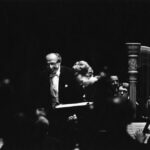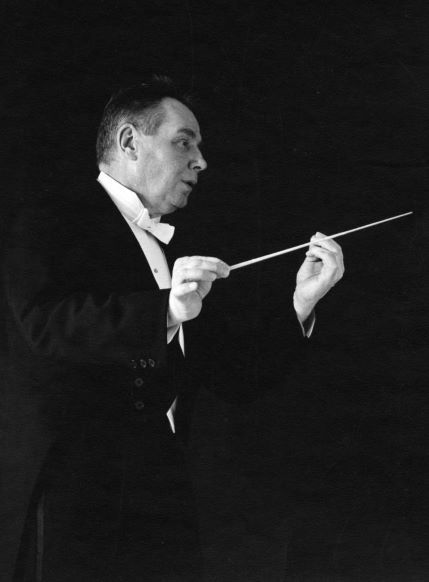Atlanta Symphony Orchestra Petition Campaign
Robert Shaw, a world-renowned choral conductor, began his tenure as the Music Director of the Atlanta Symphony Orchestra in August of 1967. Shaw founded the Atlanta Symphony Chamber Chorus, then three years later created the Atlanta Symphony Orchestra Chorus. Known for his passion of modern music, Shaw often commissioned new works and performed works by contemporary composers, much to the chagrin of some who found the music challenging. In his first year with the Atlanta Symphony Orchestra, Shaw invited renowned 20th century composer Aaron Copland to conduct. He also participated in the Festival of Contemporary Music and premiered Ulysses Kay’s Theater Set. Many saw Shaw’s programming of modern classical music as unsuitable for a world-class symphony. By 1972, the Atlanta Symphony Orchestra’s Board of Sponsors executive committee requested Shaw’s resignation due to low ticket sales and audience members’ increasing disappointment with programming. This resulted in a backlash from other concertgoers who started a grassroots campaign to circulate a signature petition to sell out the 1972-73 subscription concert series. The campaign succeeded and resulted in the renewal of Shaw’s contract. It also led to more diverse concert programming and the advancement of the arts in Atlanta. Shaw continued to serve as the Symphony’s Music Director for another 16 years until his retirement in 1988.
Shaw’s influence was felt years later when the Atlanta School of Composers was established under the leadership of Music Director Robert Spano. This was developed to champion modern classical music through commissions, premieres, and recordings. In 2007, the Atlanta Symphony Orchestra received the American Society of Composers, Authors and Publishers highest award, the John S. Edwards Award for Strongest Commitment to New American Music.




In 2015, our music archivist at GSU volunteered to serve on the Atlanta Symphony Orchestra’s Archive Advisory Board, intending to guide their Archive Program Manager in establishing an organizational archive. Two years later, the Atlanta Symphony Orchestra determined that it would be more appropriate to house the records in our Special Collections & Archives. The Atlanta Symphony Orchestra officially turned over their archives, wanting to provide students and scholars greater access to its collection and materials.
